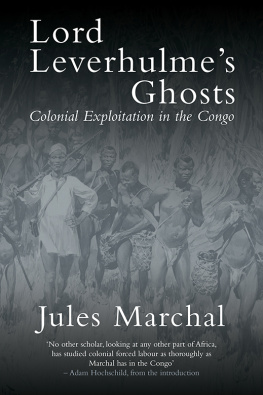Ronan Bennett - The Catastrophist
Here you can read online Ronan Bennett - The Catastrophist full text of the book (entire story) in english for free. Download pdf and epub, get meaning, cover and reviews about this ebook. year: 2000, publisher: Simon & Schuster, genre: Art. Description of the work, (preface) as well as reviews are available. Best literature library LitArk.com created for fans of good reading and offers a wide selection of genres:
Romance novel
Science fiction
Adventure
Detective
Science
History
Home and family
Prose
Art
Politics
Computer
Non-fiction
Religion
Business
Children
Humor
Choose a favorite category and find really read worthwhile books. Enjoy immersion in the world of imagination, feel the emotions of the characters or learn something new for yourself, make an fascinating discovery.
- Book:The Catastrophist
- Author:
- Publisher:Simon & Schuster
- Genre:
- Year:2000
- Rating:5 / 5
- Favourites:Add to favourites
- Your mark:
- 100
- 1
- 2
- 3
- 4
- 5
The Catastrophist: summary, description and annotation
We offer to read an annotation, description, summary or preface (depends on what the author of the book "The Catastrophist" wrote himself). If you haven't found the necessary information about the book — write in the comments, we will try to find it.
The Catastrophist — read online for free the complete book (whole text) full work
Below is the text of the book, divided by pages. System saving the place of the last page read, allows you to conveniently read the book "The Catastrophist" online for free, without having to search again every time where you left off. Put a bookmark, and you can go to the page where you finished reading at any time.
Font size:
Interval:
Bookmark:
b y R o n a n B e n n e t t
The Catastrophist
Overthrown by Strangers
The Second Prison

SIMON & SCHUSTER
Rockefeller Center
1230 Avenue of the Americas
New York, NY 10020
Visit us on the World Wide Web:
www.SimonandSchuster.com
This book is a work of fiction. Names, characters, places, and incidents either are products of the authors imagination or are used fictitiously. Any resemblance to actual events or locales or persons, living or dead, is entirely coincidental.
Copyright 1997 by Easter Productions Ltd.
All rights reserved, including the right of reproduction in whole or in part in any form.
Originally published in Great Britain in 1997 by REVIEW, an imprint of Headline Book Publishing
Simon & Schuster and colophon are registered trademarks of Simon & Schuster Inc.
ISBN-13: 978-0-7432-1337-0
ISBN-10: 0-7432-1337-8
For Georgina
t h e
c a t a s t r o p h i s t
What should I be looking at now? The Sankuru is not as wide as the Congo, not at this point at least where the barque crosses, but it has the same dull mud color, the same tinge of rust after rainfall, and there are the floating tangles of water hyacinth I know from Lopoldville. I have seen them here before, I have seen them in Stanley Pool and at the cataracts below the capital, I have seen them at Matadi where they debouch to the sea. The flowers are purple or magenta, some are powder blue. They are beautiful and malign, yet more parasites for this overleeched land. The rivers will never flush away these tokens of infection. The rain fell hard in the afternoon for two hours, forcing our absurd convoy off the roadone more delay upon many. Soon after the sky cleared one of his aides claimed to have heard the engine of a spotter plane and there was general alarm, but when I looked there was nothing. What does it matter? We have reached the Sankuru. On the other side is safety, and he and Auguste and the others of the inner circle are already across. The air has cooled. These are the bewitching minutes of the red sunball and the palms where the pied crows roost, when the bamboo groans, and homeward lines of workers tread the dusty, pocked roadshow far do these people walk in a single day? Near me, very near, a frog croaks. The cicadas are beginning their chorus. What else should I note here? I am the trained observer. Smells? Yes, there are things to smell. I can smell the fish the women have piled before them like neat mounds of twisted silver nails. I can smell the boiled eggs and the pilipili and the fried manioc they have prepared in the hope of passing trade. And I smell the hot oil and exhaust fumes of the soldiers lorries. On the far side of the river he waits with the old boatman.
The soldiers come among us, or among them, for I am not truly part of this, and because my status, my ever-evasive presence, is manifestin spite of my visible woundsI do not have to be afraid in the way I can see the others are afraid. Ins is afraid, though not for herself. She stands by the sky-blue Peugeot in which Pauline and little Roland have been traveling for the last three days. The doors are open, the stifled occupants begging the breezes. In the back, Pauline holds the boy. Ins, like the others of our party, studies the soldiers movements and glances for clues as to their intentions. So far, they have exhibited signs of a morose but unspecific hostility only: as long as their animus remains general and unexcited we may yet get across to join him. They stalk the cars and passengers. No one says anything. They come to Paulines car. An officer recognizes her and demands, first in Lingala, then in French: O est-il? O est-il? Pauline remains silent. The officers voice rises, sweat blisters on his forehead. A soldier reaches into the car and jerks Roland from his mothers grasp. A cry. Ins starts forward. Pauline is now out of the car, she sees only her child: the soldiers guns mean nothing to her. There are high shouted words in one of their languages, interrogatory and uncompromising. A soldier raises his rifle butt and strikes Roland in the face. And now we know.
What should I be looking at? Now that we know lives are at stake. A childs face has been broken but I have seen so much. I have seen bodies and blood. I have heard wailing and terror. I watch as though through a screen, I listen as though to a recording I might interrupt at will: the imprecations and pleas, the threats and the whimpers. I am thinking of the leprosy of politics, of the banality of this country and the low comedy of its calamities. I am thinking, actually, of Ruskin. Yes, Ruskin. And all of this makes me angry with Ins, for I should not be here and she should not be here: we neither of us belong to this moment of farce and melodrama. I actually feel impatient, almost embarrassed. I will not be able to confess this to Ins. But I have more than a little justification. There is something worked up, overheated about this whole business. Even this journey. We could have reached Stanleyville yesterdaywe had a days head start, the roads are for the most part good. As it is, hethe prizeis out of the soldiers reach. But had we moved with even the minimum of expedition, they would all be safe: Roland would not be bleeding and crying now, his face would not be smashed. I have cause for my irritation.
Things now are getting worse. The soldiers are jumpy, scuffles are breaking out. Someone says they are Baluba tribesmen. I cannot tell, but if this is true the situation is serious, for the Baluba have scores to settle. I go to be with Ins. She is so small and frail. I put my arm around her, partly in an act of reassurance, partly to restrain her; I do not trust her temper. There is something proprietorial in my motives, I cannot deny it. Auguste is watching from the other side of the river. He is watching us, and for oncefor the first time in a long timeI am nearer than he. I am beside her again, and perhaps I will be able to stay beside her.
It is like trying to hold a bird. She moves restlessly this way and that, struggling to follow the wheeling eddies of the affray. I do not know if she is aware of me or my touch or my careful intentions. She does not meet my gaze but beats the cage of my arms and struggles towards the makeshift jetty where, as though marshaled by a command only I have not heard, our party and the soldiers have thronged. I let her go, and she glances at me for the briefest moment, a look between alarm and accusation: she has news of impending tragedy, and again I have not heard. She is off, away from me, running to join the others. The melee has been suddenly quenched, there are no human sounds. I follow her, and as I approach I discover the cause of this sudden respite. We gaze across the river.
He already has one foot on the barque. The crude wooden raft can take one vehicle and its passengers at a time. Mungul and the others had insisted he go first. Even then they had dawdled. I can see Mungul now, and Mulele and Kemishanga, pleading with him not to go back. They keep a nervous watch on the soldiers; even now they are slipping away into the bush, leaving words of farewell to hang in the air behind them, apology for their essential desertion. Augustehe looks distressed, near to tearsembraces his leader. Then Auguste too is gone. Now there is only the boatman.
The pole pierces the water film, the muscle balls in the boatmans arm, the veins swell... and they are launched. I see Ins close her eyes. Some of our party, distrait and grieving, break from the jetty like the first mourners retiring from a burial. My irritation rises, I feel like reminding them of all the avoidable delays which have led to this.
Font size:
Interval:
Bookmark:
Similar books «The Catastrophist»
Look at similar books to The Catastrophist. We have selected literature similar in name and meaning in the hope of providing readers with more options to find new, interesting, not yet read works.
Discussion, reviews of the book The Catastrophist and just readers' own opinions. Leave your comments, write what you think about the work, its meaning or the main characters. Specify what exactly you liked and what you didn't like, and why you think so.





